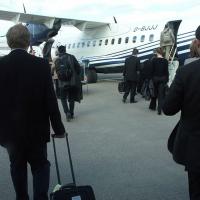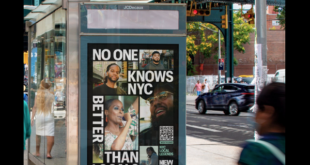[ad_1]
NEW YORK – In an increasingly fragmented travel marketplace, and amid the proliferation of technologies that offer more choice than ever, corporate travel buyers must walk a tightrope between flexibility and sensible travel policy. According to new research from ACTE Global (Association of Corporate Travel Executives), developed in conjunction with American Express Global Business Travel (GBT), travellers are increasingly demanding to control their travel experiences – and travel executives must adapt as they continue to align travel programmes with organisational objectives and resource constraints.
The study, “Balancing Business Travel Tools & Policy for the Traveller Experience,” reveals how managers are addressing travellers’ growing demands for quality of life and autonomy on the road. Thirty-seven percent of travel managers surveyed report an increase in enquiries about work-life balance, a slight increase from the October 2017 research, when the figure was 31 percent. The options sought by travellers appear to present real cost-saving opportunities: Thirty-two percent of managers saw growth in requests to use chain hotels, while 22 percent saw more employees asking about sharing lodgings with colleagues. Nearly two-thirds (61 percent) say more travellers are asking for improved technology to manage travel.
Greeley Koch, executive director, ACTE Global, said: “Business travel can be exhausting and stressful, but pursuing a collaborative process can go a long way towards supporting healthy, rested and productive employees. You never want to lock your travellers into strenuous itineraries and overly-strict policies. A two-way dialogue that addresses both employee and employer requirements, however, can actually help all parties meet their objectives. In this case, compromise need not leave both sides unhappy.”
Evan Konwiser, Vice President, Digital Traveller at American Express Global Business Travel, added: “The entire business travel experience inherently takes people outside of their comfort zones by forcing travellers to relinquish some control, especially when compared to how people travel for leisure. This research reinforces the importance of travel managers having frequent interaction and communication with travellers to address company expectations and tools available, mitigating the risk of poor experiences and out-of-policy bookings.”
Travel managers want choice, too – but fear the impact on their programmes
Travellers are not alone in feeling that outdated travel policies and limited options inhibit them and have a negative impact on the success of business trip. Travel managers feel constrained, as well: Thirty-eight percent say programmes suffer from limited content while one-fifth believe access to multiple booking channels can help improve them. However, a much larger proportion – nearly half – worry that increasing options will erode their control of the programme. Ultimately, managers must strike a balance between offering a retail-like experience to travellers while maintaining a robust programme that deters off-channel bookings and rewarding conscientious budgeting.
Safety and security remain top priorities
Further driving the need for dialogue and collaboration is ongoing traveller concern about safety and security. The global travel landscape remains volatile and uncertain amid shifting geopolitical tensions, devastating natural disasters and an increasingly complex web of travel security policies worldwide. Nearly half (46 percent) of travel managers say they’ve seen an increase in enquiries about personal safety – down from the 51 percent who reported an increase in October 2017 and the 65 percent who did so in 2016. While the rate of growth may be slowing, it remains significant, demanding that travel managers grapple with an ever-evolving threat environment.
Finding a better balance
While increasing innovation and technological change may be creating instability in the corporate travel arena, it also driving the evolution of travel programme development, ensuring travel policies continue to meet the needs and requirements of modern business travellers. A little more than a third (36 percent) of travel managers say they are planning to upgrade their technology. However, this may be a major missed opportunity: It is among the most effective ways to address travellers’ desire for choice, ease and flexibility.
Travel managers may also want to take a cue from their peers at companies with a younger workforce (where the average traveller age is under 40) – these “younger” organisations are often leading the charge when it comes to updating their programmes to address modern expectations. For example, 83 percent of younger organisations provide or plan to provide trip information apps.
“The fact is, travel managers cannot afford to let their programmes stagnate,” said Koch. “Personalized travel policies have become an important recruitment and retention tool, and job candidates are now going out of their way to ask about them and making decisions based on what they hear. Keeping up with the modern business traveller is an organisational imperative.”
Konwiser added: “Traveller centricity doesn’t mean travellers can do whatever they want or that travel policies will become so flexible that they become detrimental to the bottom line. It’s about creating policies and deploying tools that improve the traveller experience. The compliance then comes naturally, as will the savings.”
[ad_2]You can read more of the news on source
 Travelsmart
Travelsmart



